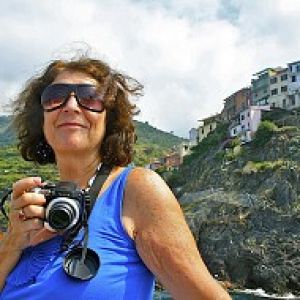The day of the long knives
Day 7
After the hassle to get a bit of dry bread and Nescafé for breakfast we set off. We had an interesting morning, firstly driving up and over the hill behind the hotel to visit a farming family in a small compound. The men and boys cultivate the crops at some distance as it is hard to find decent land. The ground maize was formed into shapes and cooked the night before and heated up the next day. The women and girls had everything to do in the home, the most difficult being collecting water from 600metres away and carrying it up the hill in huge aluminium basins. Girls as young as 6 did this. Water Aid has not reached this region yet. It’s a humbling experience this trip.
On the way back we stopped at a big hill. We climbed it for the view and a leg stretch not because there was a large white Jesus statue at the top. Some stayed in the bus. The view was great and as there was a slight breeze it wasn’t too hot, so we found it most enjoyable.
On our way back we spotted some men high in a boabab tree, knocking the fruit down. The white coating of the kernels tasted like Berwick rock. The family was very cheery and the showed us their porridge cooking.
Along the road went by a funeral. Here it is a celebration of life, led by a cross, then a few young men dressed in white and blue, plus someone carrying a picture of the deceased, then people carrying the coffin with a brass combo and dancers dressed in blue and white coming next and the brightly dressed celebrants/mourners bringing up the rear.
Next stop was a visit to a traditional blacksmith who was making hoes and spades. We also saw a woman making traditional pots.
Further on we visited a soukola, a traditionally made family complex of round mud huts with roofs made of straw. There are few left as the straw is expensive because big hotels want roofs made with it. Aluminium is a cheaper way to reroof. The elders of the family had died of Covid leaving a young man in charge.
Lunch was found in a town, pasta and tinned peas for me, but we had fast wifi so I was able to post the last 2 days blips. And watch Man Utd and City on the giant TV.
The type of Islam taking over from
RC here is Wahabi, a form of Sunni. In the guide’s village the church is derelict and the priest converted to Islam.
We checked in to our “very basic” hotel I’m Sokode. Checking in involved us checking to see if we had a sheet, towel and water. The latter was reported missing. We’re to get a bucket.
We all dashed off in the bus to see the people arriving back from the stadium where they’d spent the afternoon working themselves up to a frenzy so that they could dance and jump down the street in groups, flailing sharp knives over their body, incited on by a few rhythmic drummers and people with whistles to each group, and their heavily made up and finely dressed women. It’s called Adossa. It was all very good-natured but hectic and very crowded as we made our way up the street meeting them returning. When we turned to walk back to the bus a large troupe of heavily decorated horses and riders came towards us. As we tried to press to the side in the crush we had to avoid falling in the deep nullah. I got stuck in the melee, pushed by a passing horse and a men pulled me across the gap to safely. Our group got separated in the crush of participants, cars, motorbikes and followers. For a few moments it was quite frightening thinking of football terrace crushes where there’s nowhere to go. However it thinned out and we we able to get ourselves separately back to the bus. The Guide said he was surprised it was still so big, as he thought with the coming of Islam a lot of old traditions would be lost n
After my plate of bones, fish and rice I was ready for the Fire Dance in a nearby village. We got a good view of the magic. While the drums beat frantically the fire was stirred up and the performance began. The tradition is that many years ago when there was s tribal war, the village and women were burned. A man saved a spirit from an animal so got a reward of what he desired which was the power to keep the village and people safe from fire. Hence some of the men have power over fire. It was fascinating. They took turns at running a burning stick along their arms, legs, back, head and eventually putting it in the mouth and running it over the tongue. They spat out embers near Mr C and when he touched one, it was hot. The last act was walking through the fire. A good tip was given for such a fun show.
There’s an African disco blaring forth just outside our room which is the one on the end nearest it. I can drown it out with the trickle from the (cold) shower.
Knives Adossa
- 25
- 0
- Apple iPhone XS Max
- 1/122
- f/2.4
- 6mm
- 40

Comments
Sign in or get an account to comment.


